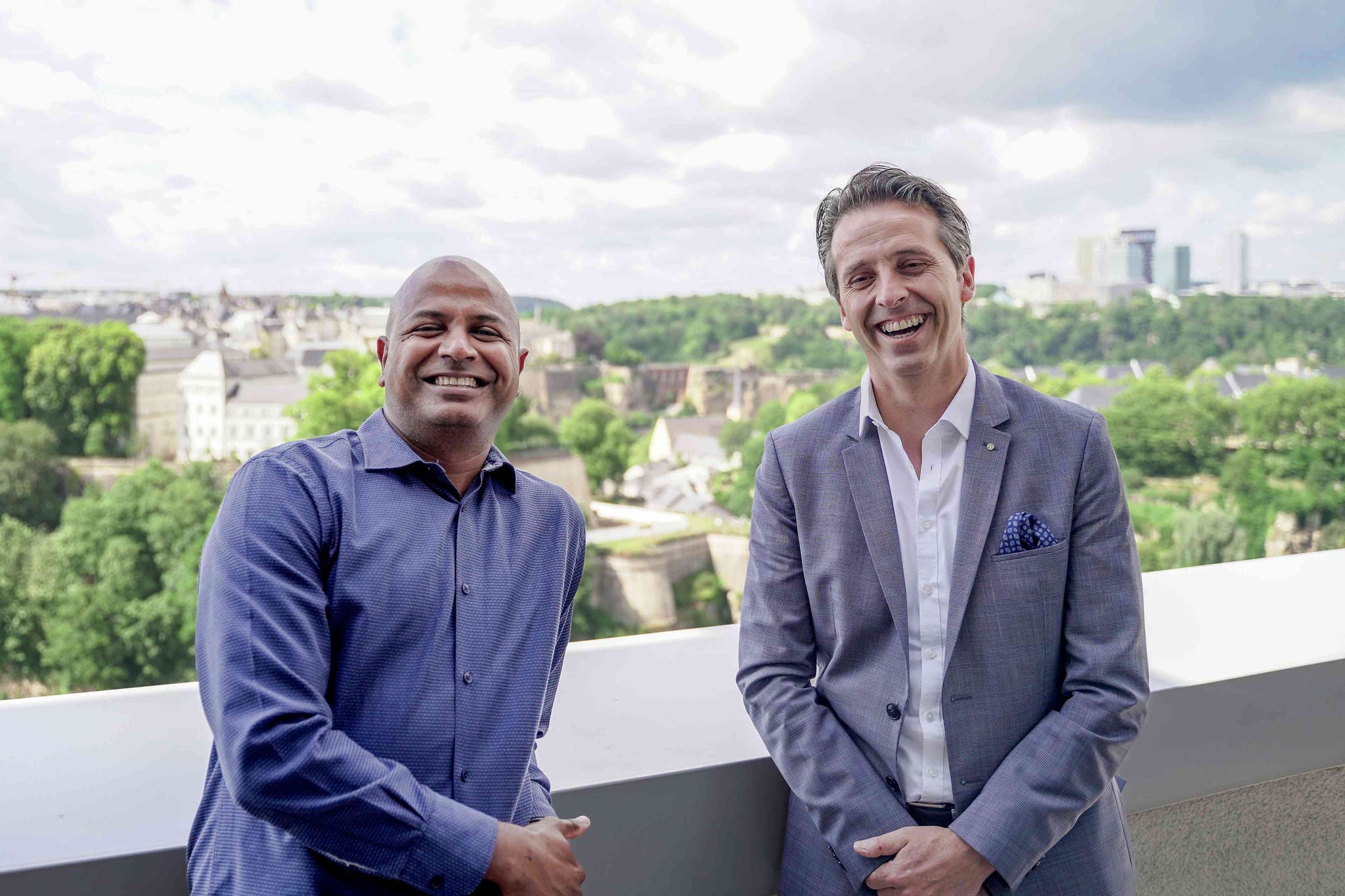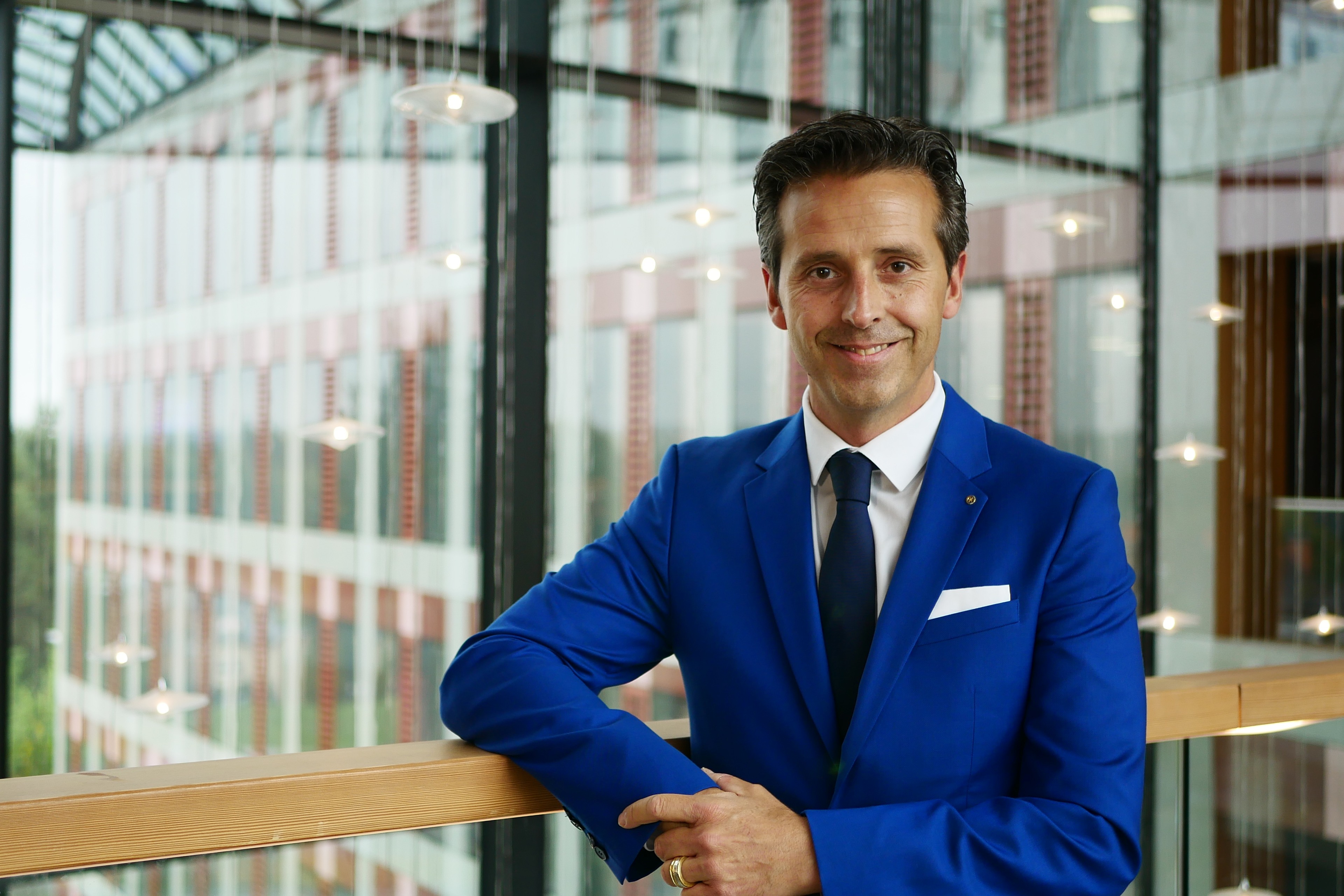EY refers to the global organization, and may refer to one or more, of the member firms of Ernst & Young Global Limited, each of which is a separate legal entity. Ernst & Young Global Limited, a UK company limited by guarantee, does not provide services to clients.

Yves Even, Partner and leader for commercial and industrial companies at EY is touring the country to meet global leaders settled in Luxembourg and share their stories. Sudhakar Sivaji, CFO of Aperam, accepted to share his insights on what’s on top of his personal and business agenda: Sustainability.

Sudhakar Sivaji, CFO of Aperam and Yves Even, EY Luxembourg Partner
Yves Even: What is the biggest personal challenge you have recently taken on?
Sudhakar Sivaji: on the back of recently moving from Germany to Luxembourg, after setting up my family and work, I am finally starting to get my personal routine back to normal.
Luxembourg is a very welcoming country, and most of the moving process has been easy, but I need to be honest – and I know that I am far from being the only one with this challenge: finding a house was a real issue!
YE: Relying on your experience of supporting the industrial sector in Europe, what could Luxembourg do better to become more interesting for multinational companies?
SS: Industrial companies have traditionally been attracted by places where they could find raw materials and / or markets. Later on, another criterion that attracts them has been places where great minds could come together to spark new ideas and innovation. Third, places that can offer capital, from strong banks to incentives, have a clear advantage.
Luxembourg might not have much raw material nor a big market, but the country has another incomparable advantage on top of its capital incentives: its capacity to respond quickly to the needs of companies, and its agility.
Currently, and thanks to decades of hard work by the local ecosystem, a company which wants to settle in Luxembourg will find all experts needed to get running easily, it is almost “plug and play”. The right firms in audit, banking, law, accounting, fund domiciliation and many others exist and are efficiently interconnected to respond to the demand. Why not establish an ecosystem of partners in sustainability? Along with incentives, this right advice could be key.
Exactly as it has become one of the top financial centers in the world, Luxembourg could become the number one cluster for Sustainability. I personally think that Luxembourg is one of the rare countries to have the capacity to set the tone in creating something new.
Of course, it takes a lot of hands to get things moving, and for this you need people. Another question is therefore how to attract top talent in Luxembourg. Scholarships dedicated to sustainability could be one of many ideas to be developed.
YE: Sustainability is very high on Aperam’s agenda. What actions would you expect from the government so that the country becomes best in class in terms of carbon footprint?
SS: At Aperam, we work on reducing our carbon footprint for example by developing the right industries. Clearly, the recycling industry will have a crucial role to play. Humankind cannot get away with the current problem in continuing to use resources in the way we do currently.
How is digging 300 meters into the earth to gather oil, make plastic out of it, transport this plastic from Asia to Europe – just to use it to drink a coffee and then throw it away – cheaper than using and washing a reusable cup? We have to change our mentalities. And it is also the role of companies and the government to accommodate this change.
Everyone at the moment claims themselves sustainable, but it is important to scale up regulations and controls to avoid greenwashing. Why not implement a specific “green” visa to be obtained by companies settling in the country and offer only then support and incentives (like many countries seem to be doing – see the “plan relance” in France). It might sound contradictory to implement new requirements, as they seem to act as a hurdle, but I think that footprint wise, this could change the world and attract the best in sustainability to Luxembourg.
It will require strong partnerships, just as 25-30 years ago when the different parties came together with the government and started building what Luxembourg would become today. To develop a center of excellence in this field, a clear path needs to be defined in the next 3 to 5 years. Many of these incentives exist already, but they need to be encouraged to scale up.
This article was published in Luxembourg Times.
Summary
Yves Even, Partner and leader for commercial and industrial companies at EY is touring the country to meet global leaders settled in Luxembourg and share their stories. Sudhakar Sivaji, CFO of Aperam, accepted to share his insights on what’s on top of his personal and business agenda: Sustainability.


